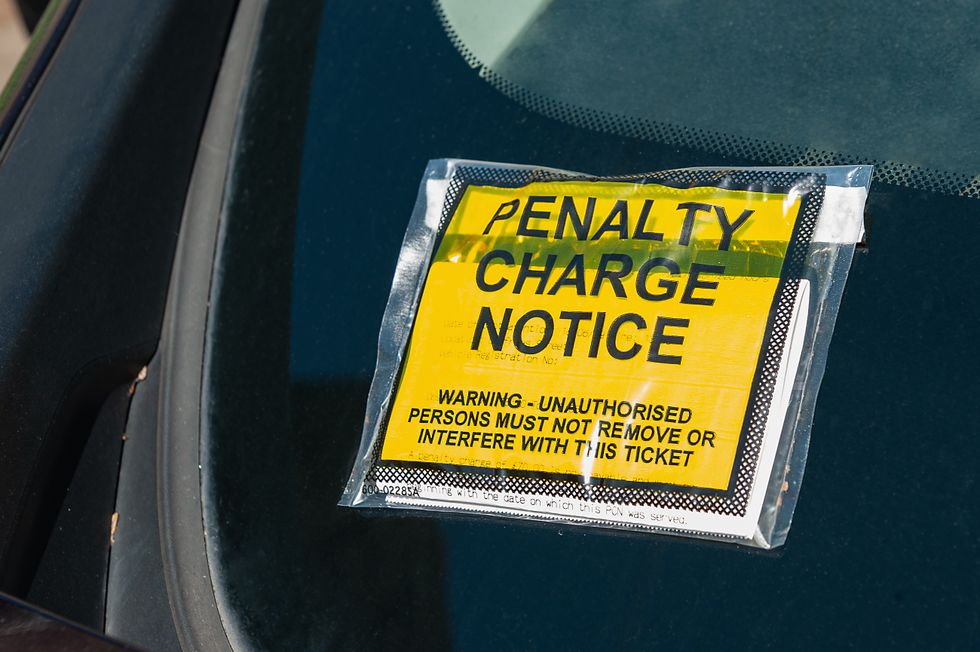Holly Bishop
Guest Reporter
Local councils could soon be given powers to issue on-the-spot fines for minor misdemeanours such as climbing trees in parks, under new proposals.
The changes are part of Angela Rayner's White Paper on English devolution, which would grant councils expanded authority to impose fixed penalty notices rather than taking people to court.
The move would significantly increase councils' ability to enforce local by-laws without requiring permission from government ministers, as is currently required.
Critics fear the new powers could be misused by cash-strapped councils seeking to raise additional funds.

Under current rules, councils must obtain approval from a government minister to introduce new local laws.
The proposed changes would remove this requirement, allowing councils to enforce by-laws through fixed penalty notices instead of court proceedings.
Typical on-the-spot fines issued by local authorities currently range between £50 and £100.
Councils already possess limited powers to issue immediate penalties for offences like littering and fly-tipping.
The government's White Paper argues the centuries-old process for making by-laws is outdated for modern governance.
"We believe that local leaders are best placed to understand and respond to these issues," the White Paper states.
MORE LIKE THIS:

Kevin Hollinrake, the shadow local government secretary, has strongly criticised the proposals.
"The Labour Government will leave no stone unturned in their mission to pick people's pockets," he said.
He warned the changes could allow "over-zealous town hall officials to ban lawful innocent activities in public places, such as vaping, walking a dog or going on an organised group run."
"The justice system should not be hijacked to line the taxman's pockets," Hollinrake added.
The Conservatives previously rejected similar proposals during the coalition government due to concerns about revenue-raising.
Last year, two councils faced criticism for implementing tree-climbing bans in protected public spaces - Torfaen in Wales and Rugby.
Based on current council by-laws across the country, the new powers could lead to fines for various activities in public spaces.

These could include walking more than one dog at a time, playing ball games, using model aircraft and kites.
Even informal games of football or cricket could potentially result in penalties under the expanded powers.
Councils have already demonstrated their ability to generate significant income through fines, with £620 million collected in parking fines last year alone.
Josie Appleton, director of civil liberties group Manifesto Club, expressed concerns about the potential misuse of the new powers.
"I'm worried that councils will use these new powers for revenue-raising, as they do with other powers that allow fixed penalty notices," she said.
She warned that councils increasingly employ private enforcement officers who are paid per fine.
"There are lots of archaic by-laws on the books, so we can expect people to be penalised for public nuisance, playing music or ball games in a park," Appleton added.
A government spokesman said they will work with councils to review the enforcement of by-laws through fixed penalty notices.
Find Out More...
The changes are part of Angela Rayner's White Paper on English devolution, which would grant councils expanded authority to impose fixed penalty notices rather than taking people to court.
The move would significantly increase councils' ability to enforce local by-laws without requiring permission from government ministers, as is currently required.
Critics fear the new powers could be misused by cash-strapped councils seeking to raise additional funds.

Under current rules, councils must obtain approval from a government minister to introduce new local laws.
The proposed changes would remove this requirement, allowing councils to enforce by-laws through fixed penalty notices instead of court proceedings.
Typical on-the-spot fines issued by local authorities currently range between £50 and £100.
Councils already possess limited powers to issue immediate penalties for offences like littering and fly-tipping.
The government's White Paper argues the centuries-old process for making by-laws is outdated for modern governance.
"We believe that local leaders are best placed to understand and respond to these issues," the White Paper states.
MORE LIKE THIS:
- Labour lays out emergency contingency plans as officials ‘brace for private schools collapse’
- Girl, 5, hit with £1,000 fine and threatened with court action after being 'caught flytipping'
- Taxpayers to foot £43bn worth of council debt under Rayner's 'devolution revolution'

Kevin Hollinrake, the shadow local government secretary, has strongly criticised the proposals.
"The Labour Government will leave no stone unturned in their mission to pick people's pockets," he said.
He warned the changes could allow "over-zealous town hall officials to ban lawful innocent activities in public places, such as vaping, walking a dog or going on an organised group run."
"The justice system should not be hijacked to line the taxman's pockets," Hollinrake added.
The Conservatives previously rejected similar proposals during the coalition government due to concerns about revenue-raising.
Last year, two councils faced criticism for implementing tree-climbing bans in protected public spaces - Torfaen in Wales and Rugby.
Based on current council by-laws across the country, the new powers could lead to fines for various activities in public spaces.

These could include walking more than one dog at a time, playing ball games, using model aircraft and kites.
Even informal games of football or cricket could potentially result in penalties under the expanded powers.
Councils have already demonstrated their ability to generate significant income through fines, with £620 million collected in parking fines last year alone.
Josie Appleton, director of civil liberties group Manifesto Club, expressed concerns about the potential misuse of the new powers.
"I'm worried that councils will use these new powers for revenue-raising, as they do with other powers that allow fixed penalty notices," she said.
She warned that councils increasingly employ private enforcement officers who are paid per fine.
"There are lots of archaic by-laws on the books, so we can expect people to be penalised for public nuisance, playing music or ball games in a park," Appleton added.
A government spokesman said they will work with councils to review the enforcement of by-laws through fixed penalty notices.
Find Out More...
